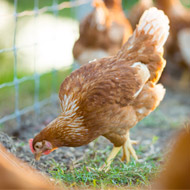
Decision follows confirmation of the H5N6 strain in Warwickshire
The Department for Environment, Food and Rural Affairs (Defra) has extended an avian flu prevention zone to the whole of England.
The news comes after the latest finding of the disease in 13 wild birds in Warwickshire, bringing the total number of confirmed infected wild birds in the UK to 44.
Last week (12 January), Defra confirmed the disease in 17 wild birds in Dorset and a total of 31 infected birds have now been found at that site. The department took swift action to put a local prevention zone in place. But, as these new findings show, the disease is not isolated to a single area.
Defra states that testing on the birds found in Warwickshire is underway, but it is expected that it will be the same H5N6 strain of the virus which has been circulating across wild birds in Europe. It adds that the decision to extend the zone has been taken ‘on a precautionary basis’.
The prevention zone makes it a legal requirement for all bird keepers in England to follow strict biosecurity measures. These include feeding and watering birds in enclosed areas and minimising movement in and out of bird enclosures.
Keepers with more than 500 birds will also be required to take extra biosecurity measures, including restricting access to non-essential people and cleaning and disinfecting vehicles.
“Following the latest finding of bird flu in wild birds in Warwickshire, we are extending our action to help prevent the virus spreading to poultry and other domestic birds,” said chief veterinary officer Nigel Gibbens.
“Whether you keep just a few birds or thousands, you are now legally required to meet enhanced biosecurity requirements and this is in your interests to do, to protect your birds from this highly infectious virus.”
Defra said the prevention zone will remain in place until further notice and will be kept under regular review. There are currently no plans to carry out any culls or put movement restrictions in place.



 The veterinary mental health charity Vetlife is inviting the veterinary community to join it for a sponsored cold-water dip.
The veterinary mental health charity Vetlife is inviting the veterinary community to join it for a sponsored cold-water dip.